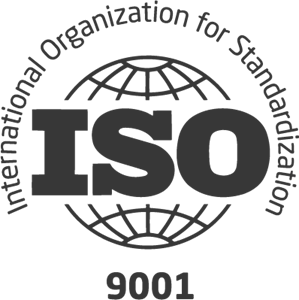Quality control is necessary for every industry but is particularly important in electronics. Supply chains offer a range of electronic components made with varying degrees of quality, so end users need to know which distributors and manufacturers provide the best products. Additionally, should there be an issue with an electronic part, companies should have established policies to rectify the problem. Such certifications help customers all along the electronics supply chain to choose the most reliable and quality-conscious vendors to meet their needs.
Electronics distributors, original equipment manufacturers (OEMs), and others along the electronics supply chain benefit from certifications, which point customers toward the most reliable electronic component and equipment vendors. Several organizations exist that assist companies in applying industry standards through certifications that show customers which companies are reliable suppliers.
Some of the main organizations involved in electronics standards and certifications are:
- Electrostatic Discharge Association (ESDA) is a professional association founded in 1982 to advance theories and practices regarding the avoidance of electrostatic discharges.
- Society of Automotive Engineers (SAE) is an international association with nearly 130 thousand engineers, along with others with technical expertise, that promotes consensus on standards, seeking to educate those in the commercial vehicle, automotive, and aerospace industries on best practices within their industries.
- Components Technology Institute Inc. (CTI) is a consulting and engineering corporation that provides training and promotes conferences and other learning events concerning assessing reliability and investigating failures for engineering components.
- Independent Distributors of Electronics Association (IDEA) electronics supply chain is a global trade association comprised of organizations dedicated to quality initiatives that provide Responsible Procurement Solutions™ to the supply chain.
- International Organization for Standardization (ISO) is a worldwide federation of national standards bodies. ISO is a nongovernmental organization comprising standards bodies from more than 160 countries, with one body representing each member country.
Here are seven of the most widely used QA certifications and standards in the electronics industry:
ANSI/ESD S20.20
The most recent iteration of this standard is ANSI/ESD S20.20-2014, which replaced the ANSI/ESD S20.20-2007 standard. Overseen by the Electrostatic Discharge Association (ESDA), it provides certification regarding protecting vulnerable electronics from potentially damaging electrostatic discharges. A facility-level standard helps companies establish programs to protect electrical and electronic equipment, components, and assemblies. Intended for companies that design, handle, manufacture, or test electronics, this standard presents guidelines for developing and maintaining such programs. It’s issued by third-party bodies authorized by the ESDA, requiring annual audits to maintain certification.
AS9120B
A company-level standard by the Society of Automotive Engineers (SAE), AS9120B deals specifically with aerospace and defense products. A certified company would need to meet all regulatory and consumer prerequisites without exception. Certification also includes quality management system requirements per the ISO 9001:2015 standard, including regulatory and statutory requirements.
CCAP – 101
A newer standard, the Counterfeit Components Avoidance Program (CCAP), was developed by the Components Technology Institute (CTI) to help prevent the purchase of counterfeit electronics. This standard addresses supply chain issues regarding counterfeit parts via this standard, focusing on independent electronics distributors. Certified distributors must follow certain mandates that enable the detection and avoidance of counterfeit electronic or electrical parts. It applies only to new parts, including commercial and military electronic components that haven’t yet been installed.
IDEA-ICE-3000
This standard, developed by the Independent Distributors of Electronics Association (IDEA), refers to the certification of quality inspectors, ensuring they have optimal skill levels for performing annual audits. It specifically concerns inspectors applying industry best practices and standards during inspections while ensuring they have sufficient research skills to detect counterfeit, substandard, and suspect electronics. Supply chains benefit from quality inspectors, engineers, managers, and supervisors who pass IDEA-ICE-3000 exams, providing added confidence that components are genuine.
IDEA-QMS-9090
Developed by the IDEA, IDEA-QMS-9090 is a company-level standard that establishes explicit practices and requirements to ensure customer satisfaction. It specifically addresses concerns in the electronics supply chain regarding substandard components that may threaten safety, product performance, and national security, which can disrupt commerce. The certification looks at many areas within the electronics industry that aren’t covered by other key quality management systems. As a consensus-based standard, it involves input from various association members and complements other certifications, including elements of the ISO 9001:2008 standard.
IDEA-STD-1010-B
Designed for the electronics industry, IDEA-STD-1010-B is the first quality standard in the industry. It looks at the quality of electronic components throughout the electronics supply chain. Using a 72-point process based on visual inspection, this certification is used by many electronics distributors and OEMs to detect counterfeit and substandard parts. It’s only administrated by IDEA inspectors certified under IDEA-ICE-3000.
ISO 9001:2015
ISO 9001:2015 by the International Organization for Standardization (ISO) provides certification at the company level. A company must meet rigorous prerequisites in its quality management system to attain this certification. This involves demonstrating consistency in regulatory and statutory compliance regarding providing products and services to customers while also enhancing customer satisfaction. Though this standard doesn’t specifically apply to the electronics supply chain, it applies to any size or type of organization regardless of the products and services provided.
Solid State Inc. QA Certification
Any of the above QA certifications indicate that an electronics supply chain vendor takes the quality of the components they manufacture or deliver seriously. Solid State’s quality management system is certified to conform with ISO 9001:2015 for its business as a semiconductor fabricator and an electronic component distributor. The Performance Review Institute (PRI) auditors facilitate oversight of supply chain programs and certify quality management systems, focusing on quality and safety issues.
At Solid State, we take our responsibilities to our customers seriously. We continuously strive to ensure our customers get the highest quality components in the electronics supply chain. For more information about our various products and services, contact Solid State today.


